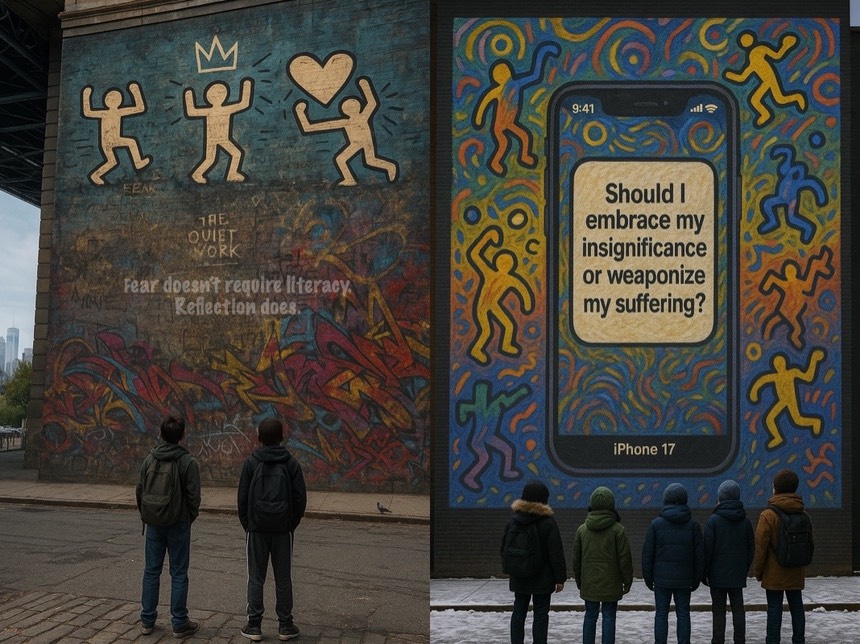
The Risk of Writing for Reflection Instead of Agreement
In the current media climate, the fastest path to building an audience is also the simplest: tell people what they already believe, just louder. Modern writing — especially online — often trades complexity for clarity, disagreement for engagement, nuance for virality. As a writer who intentionally chose long-form, self-reflective commentary over neat binaries, I’ve come to understand the paradox of trying to invite thought in a market that rewards certainty.
Binary writing has a clear utility: it’s efficient. It tells readers who the heroes are, who the villains are, and which camp they belong in. It offers immediate belonging. It speaks the language of momentum — “We,” “They,” “Right,” “Wrong.” That kind of content spreads effortlessly because it makes readers feel affirmed and mobilized, sometimes even righteous.
Reflective writing does the opposite. It slows the reader down. It doesn’t offer a side to stand on as much as a mirror to stand before. It introduces ambiguity, gently undermines certainties, and resists quick conclusions. That kind of writing doesn’t go viral — it lingers, unsettles, and sometimes gets dismissed as unclear or overly complicated.
That is the quiet risk of writing for reflection instead of applause: you make it easier for people to disagree with you without fully engaging, or to reject you not for your position, but for refusing to simplify yourself into one.
As someone who writes about social, economic, and moral tensions from a standpoint of self-confrontation, I’ve often found that the greatest resistance isn’t to my argument, but to my refusal to present one dimensionally. When a reader can’t easily categorize your viewpoint, they often categorize you instead — “too idealistic,” “too emotional,” “too left,” “too contrarian,” “too philosophical.” Labels rush in to fill the gap where simplicity once lived.
Yet I continue to write long-form reflections not because they are the best way to win attention, but because they feel like the most honest way to engage the public imagination. There is something ethically important in making room for internal contradiction — in acknowledging that most political and economic beliefs contain unspoken trade-offs, psychological needs, and unintended consequences. But making that case requires time, patience, and space — commodities that binary discourse happily discards.
Of course, I recognize the irony: in resisting polarization, I risk being read by no one other than those already inclined to slow down. In writing to challenge comfort, I may unintentionally push away those most in need of the challenge. In refusing to flatter the reader, I risk sounding like I’m writing at them rather than with them.
There is a reason movements are fueled by slogans, not essays.
Yet I hold to the belief that not all public persuasion needs to be immediate. Some forms of persuasion don’t convert; they compost. They linger in a reader like a quiet question that resurfaces later — not in the comment section, but in a private moment of doubt or courage.
The goal of my writing isn’t to change anyone’s mind in real time. It’s to create a moment of friction where a reader briefly wonders whether their most cherished certainty deserves another look. That moment may pass. Or it may stick.
In an environment where outrage is easy and introspection is rare, writing toward reflection may be slow work — even lonely work. But not all meaningful change happens in public. Some of it begins in silence, where a reader is finally alone with what they believe.
If you are someone willing to sit in that kind of silence — not to agree with me, but to think with me — you’re welcome to download my writings for free.
- Jose Franco
